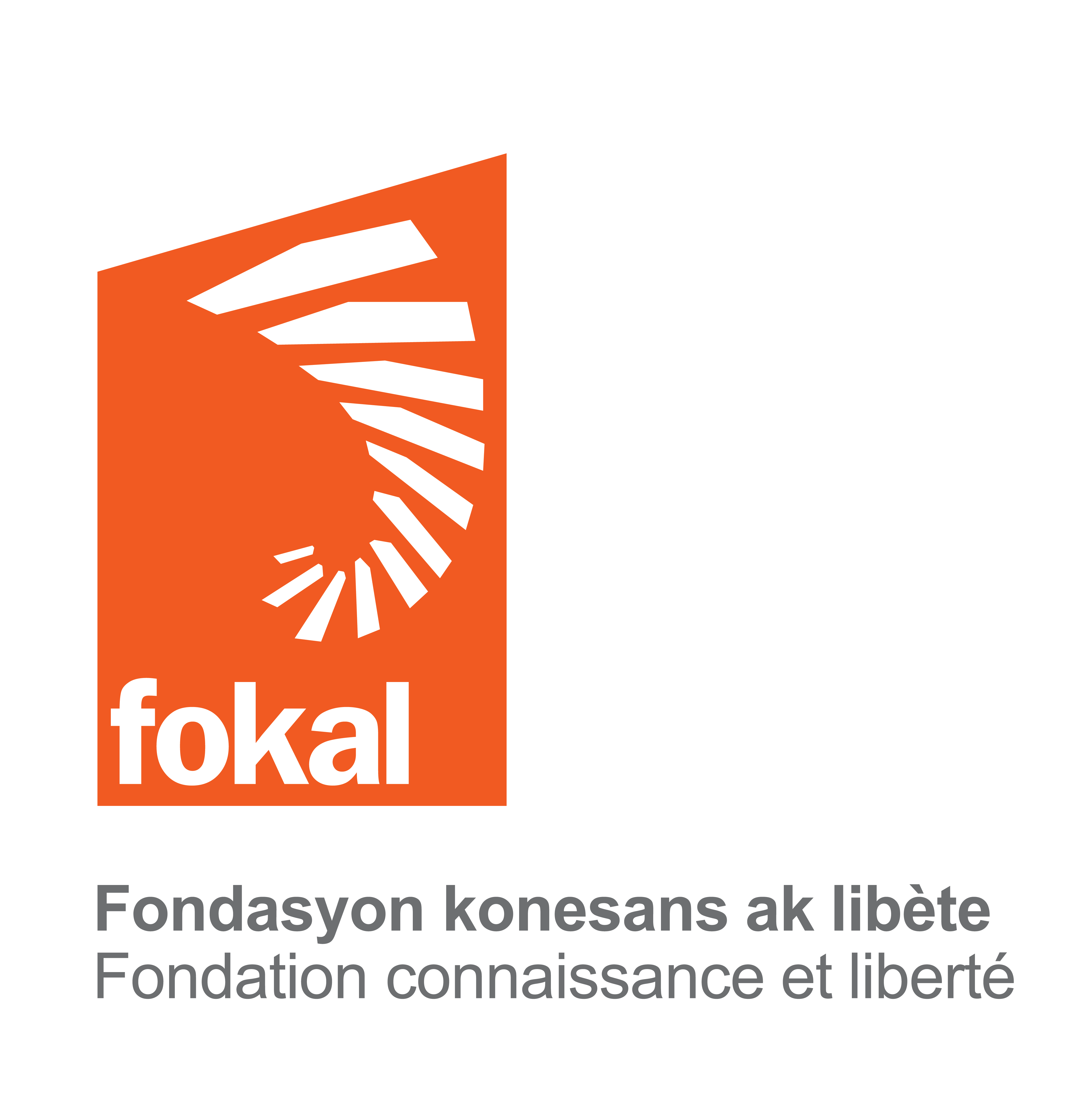Doctorat Honoris Causa décerné à Michèle Duvivier Pierre-Louis par Bard College
 La Fondation Connaissance et Liberté – FOKAL a l’honneur d’annoncer que sa présidente, Michèle Duvivier Pierre-Louis, a été distinguée par Bard College (États-Unis), qui lui a décerné un Doctorat Honoris Causa. Cette reconnaissance salue son engagement de longue date en faveur de l’éducation, de la culture, des droits humains, de la démocratie et de la justice sociale.
La Fondation Connaissance et Liberté – FOKAL a l’honneur d’annoncer que sa présidente, Michèle Duvivier Pierre-Louis, a été distinguée par Bard College (États-Unis), qui lui a décerné un Doctorat Honoris Causa. Cette reconnaissance salue son engagement de longue date en faveur de l’éducation, de la culture, des droits humains, de la démocratie et de la justice sociale.
La cérémonie s’est tenue à New York, le samedi 24 mai 2025, en présence de la communauté universitaire. Absente ce jour-là, Mme Pierre-Louis a été représentée par Patricia Benoit, qui a prononcé en son nom un discours que nous vous invitons à lire dans son intégralité ci-dessous.
Bard college 165 th Commencement
May 24, 2025
Mr. President,
Dear Faculty,
Dear Parents,
Dear Graduating Students,
Distinguished Guests and Honorees,
Last October I received a letter from President Leon Botstein informing me that I was selected to receive an Honorary Degree of Doctor of Humane Letters at the College’s 165 th Commencement. I was overwhelmed with joy and pride, and my letter of response expressed how honored I was. I began to imagine the event and started to foresee and plan, while at Bard, preliminary arrangements were handled by Ms. Stetson.
However, I had not anticipated what happened next in November 2024. Continuing gang violence escalated and forced the closing of Port-au-Prince airport to international flights, isolating the country once again. The situation continues to be volatile. The ongoing violence threatens my home and those of colleagues and loved ones. This is why I am not here with you today. I thank my dear friend and filmmaker, Patricia Benoit, for conveying my brief comments to you.
I live in Haiti; I am Haitian, and I am very proud to be Haitian.
Just over two hundred years ago, the Haitian Revolution challenged the superpowers of the time: France, Great Britain, Spain and the United States. The message from our side was clear: half a million Black former enslaved people won a war against Napoleon’s army and abolished slavery, colonialism and racism, thus declaring to the world that they belonged to a common human condition.
The World Order at the time rejected the claims and sought to undermine this new Republic. They considered it a threat to their interests and to the racist ideology of the times. These “superpowers “ launched a formidable campaign against Haiti - attempting to delegitimize the country - culturally and politically . This translated into a systematic claim of the inferiority of the “Other”, by negating their human dignity. Measures were taken to isolate and to economically cripple our fledgling nation. A lasting and pervasive set of conducts that persists today.
Haitian scholar Michel-Rolph Trouillot, professor at the University of Chicago studied how the Western powers failed to acknowledge the only successful slave revolt of modern times in his anthropological study of the Haitian revolution whose title says it all: Silencing the Past, Power and the Production of History.
Today, Haiti is once again living a tragedy, in the Greek sense of the term. We experience conflicts, terror, betrayal, cruelty, fear, hate, compromise, passion, but also compassion, resistance, empathy, solidarity and hope. And we are still working on finding the most constructive moral to our current story , a moral that would help us clarify the fate of what is happening to our country.
Exactly a month ago, the Vice-Chancellor of OSUN, Professor Jonathan Becker, invited me for the fourth time to participate in his class on civic education. It was an honor and I decided to speak about the ethics of care. We discussed its constitutive elements: attention, responsibility, competence and responsiveness, all of which relate to consideration of the Other.
It was wonderful to listen to the students’ questions and to recognize their understanding based on their own experiences. Across the oceans, while historical and cultural environments may be different, students from Myanmar, Afghanistan, Congo, Haiti, are experiencing similar conditions of violence. How can civic engagement mitigate these effects? I explained how my colleagues and I have helped communities of artists whose workshops were ransacked to relocate safely, smallholder farmers to continue to produce, and a few displaced families to find solace, in my home.
I had in mind then, what I often tell my own students “Sapere aude” “Oser savoir”. “Dare to learn “: use your own reasoning, and always uphold a sense of our common humanity.
And this leads me to you, the graduating students of Bard College who today celebrate a new Beginning. I still have fond memories of my own years in college, though a very long time ago. I believe it will be the same for you.
As a distinctive liberal arts institution, Bard demonstrates how studies in philosophy, history, languages and the arts are at the intersection of its commitment to civic education, civic engagement and an openness to the world.
At the heart of this process is the development of critical thinking : that is the capacity to read and to integrate new ideas, thereby constructing a body of knowledge that challenges the prevailing doxa and creates a new narrative, a new imaginary. The complexity of our time makes this process more urgent as we are confronted with over simplified and destructive alternate reality, alternate truths, and alternate facts.
I wish you all to remain life-long learners.
I also want to thank your parents, your professors and the entire staff of this very special university for their patience, their assistance, their attention, their love, and their joy on this day of academic accomplishment.
I would like to conclude this brief comment by a heartfelt homage to President Leon Botstein: music conductor, historian, academic administrator, cultural leader and prominent intellectual figure who has held the position of Bard College President since 1975. Fifty years of extraordinary service to education that makes him the longest-serving college president in the United States. Thank you, President Botstein. I want to reiterate how honored I am to be recognized here.
Thank you to all of you for your attention. I wish you the very best.
Michèle Duvivier Pierre-Louis
President of FOKAL




